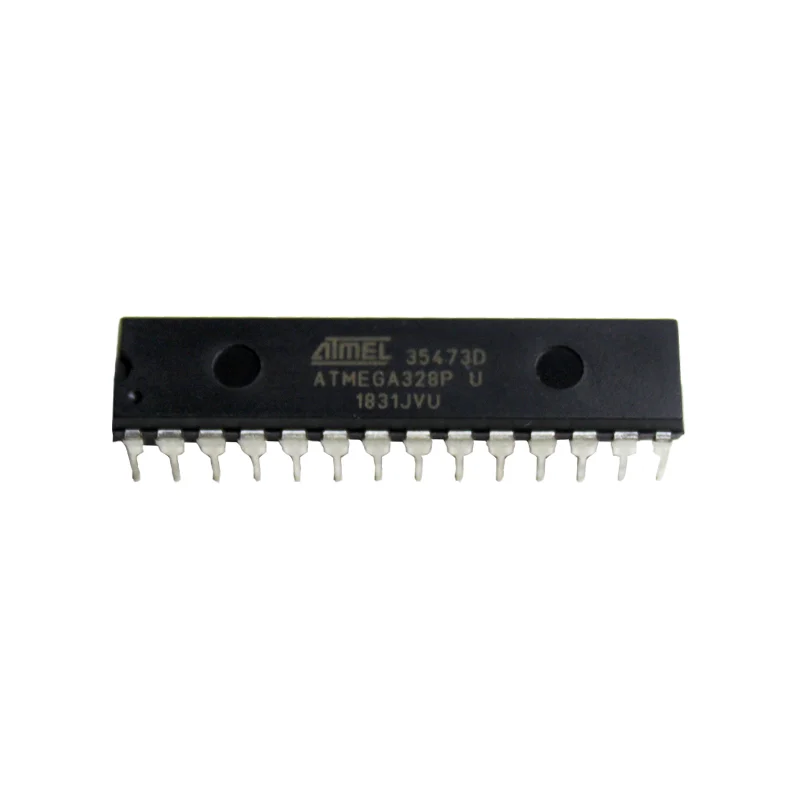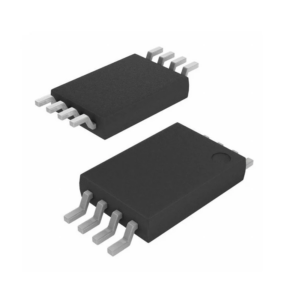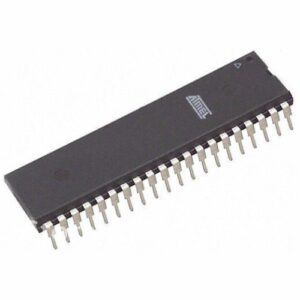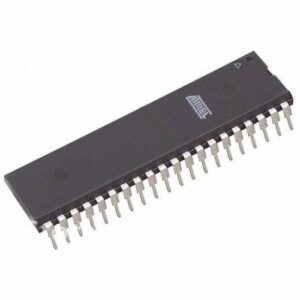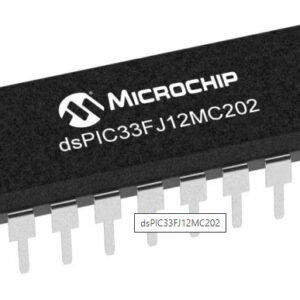This is a Chinese version of ATmega328P-PU IC which also known as ATmega328P-U. So you may receive IC with printed name ATmega328P-U.
The ATMEGA328P- U is a low-power CMOS 8-bit microcontroller based on the AVR enhanced RISC architecture. By executing powerful instructions in a single clock cycle, the ATmega328P-PU achieves throughputs approaching 1 MIPS per MHz allowing the system designer to optimize power consumption versus processing speed.
The AVR core combines a rich instruction set with 32 general purpose working registers. All the 32 registers are directly connected to the Arithmetic Logic Unit (ALU), allowing two independent registers to be accessed in one single instruction executed in one clock cycle. The resulting architecture is more code efficient while achieving throughputs up to ten times faster than conventional CISC microcontrollers.
The ATmega328P-PU AVR is supported with a full suite of program and system development tools including C Compilers, Macro Assemblers, Program Debugger/Simulators, In-Circuit Emulators, and Evaluation Kits.
Note: The available IC model for this type is ATMEGA328P U.
Features:
High Performance, Low Power Design:
8-Bit Microcontroller Atmel? AVR? advanced RISC architecture
- 131 Instructions most of which are executed in a single clock cycle
- Up to 20 MIPS throughput at 20 MHz
- 32 x 8 working registers
- 2 cycle multiplier
Memory Includes:
- 32KB of programmable FLASH
- 1KB of EEPROM
- 2KB SRAM
- 10,000 Write and Erase Cycles for Flash and 100,000 for EEPROM
- Data retention for 20 years at 85?C and 100 years at 25?C
- Optional bootloader with lock bits
- In System Programming (ISP) by via bootloader
- True Read-While-Write operation
- Programming lock available for software security
I/O and Package:
- 23 programmable I/O lines
- 28 pin PDIP package
Speed Grades:
- 0-4 MHz at 1.8-5.5V
- 0-10 MHz at 2.7-5.5V
- 0-20 MHz at 4.5-5.5V
Low power consumption mode at 1.8V, 1 MHz and 25?C:
- Active Mode: 0.3 mA
- Power-down Mode: 0.1 ?A
- Power-save Mode: 0.8 ?A (Including 32 kHz RTC)
